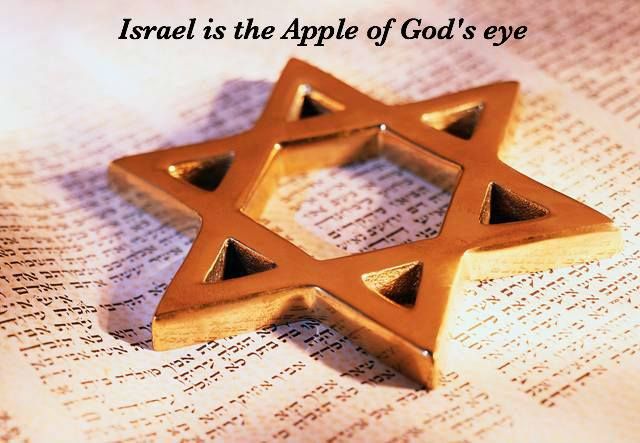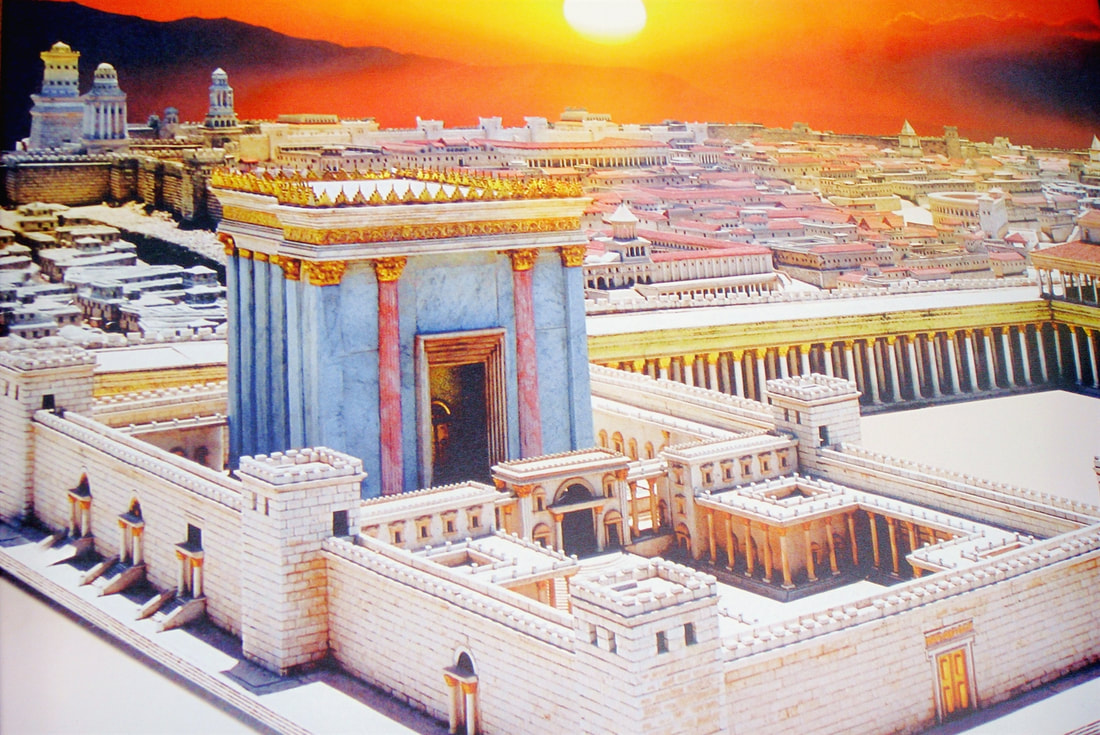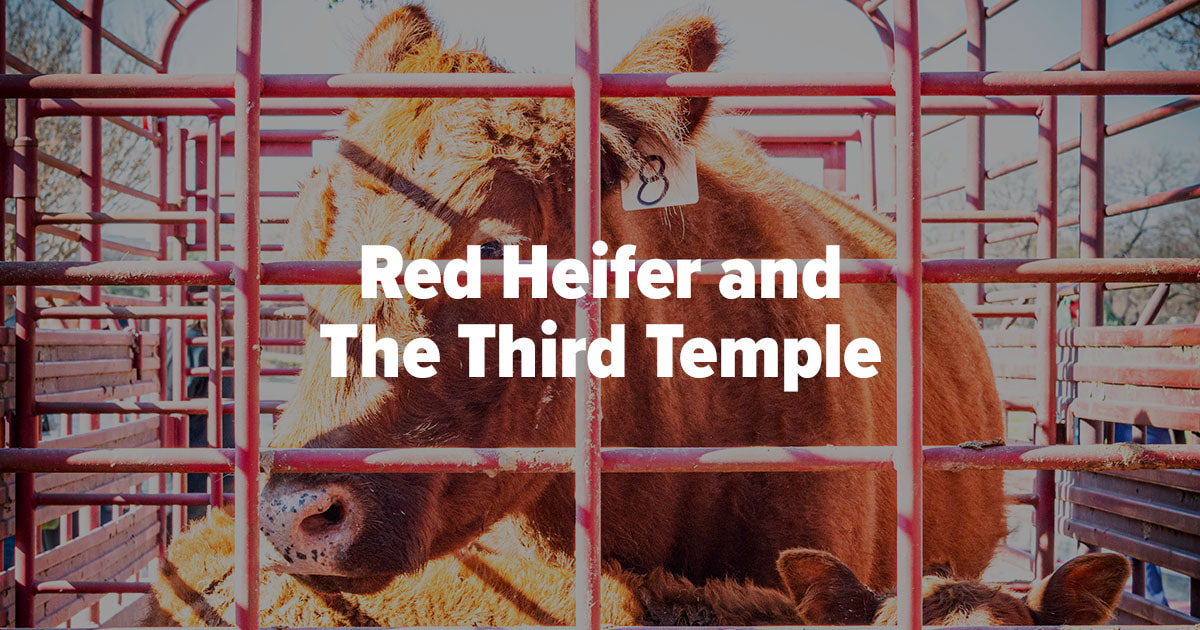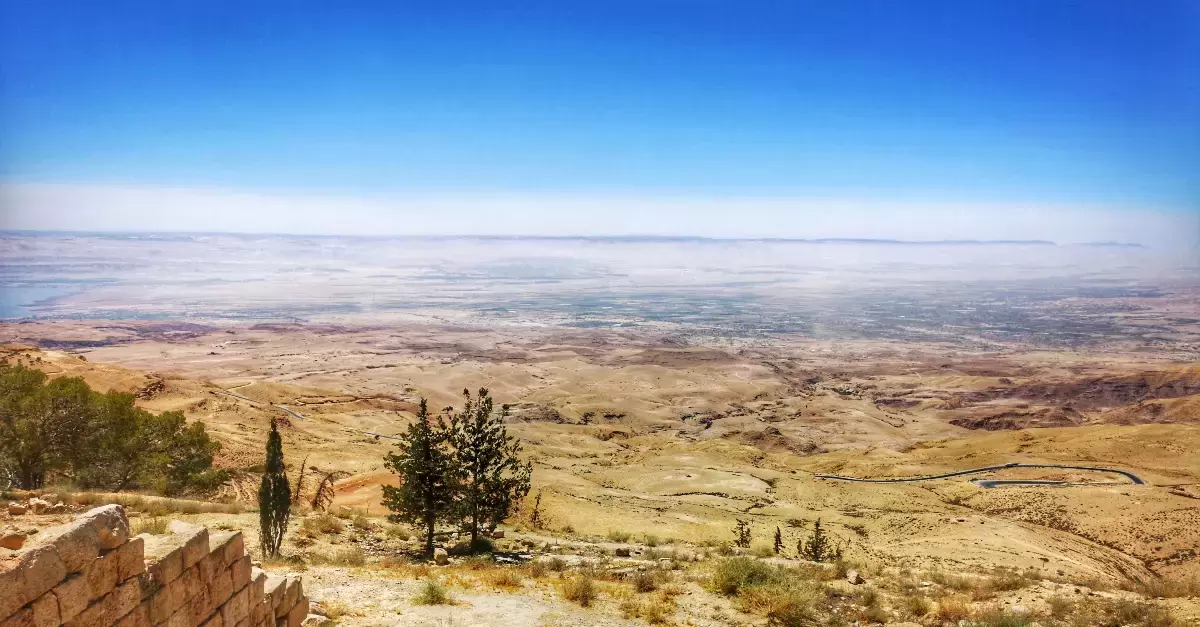They are a minority. They always have been a minority. Moses, their first national leader, described them as “the least of all peoples” (Dt. 7:7); and that assessment remains true today, more than 3,500 years later. Among the world’s population of approximately 7 billion, they are a mere handful: 14 million to 15 million, a scant one-fifth of one percent.
In fact, they are so few in number that some cities have greater populations than there are Jewish people in the entire world.
Yet Jewish people have made an enormous impact
on the world because of a legacy that began more than 4,000 years ago when God entered into a unique relationship with
Abraham in Ur of the Chaldeans.
Though circumstances have changed,
God does not change.
He loved the Jewish people in ancient days,
and He loves them today.
Unsolicited Love
Abraham’s relationship with God was not a modification or evolution of anything else around him. It was distinct from everything.
When Abram (later called Abraham) obeyed God’s call,
he not only walked away from a sophisticated, cosmopolitan city,
but he also turned his back on the prevailing worldview
and entered into a unique relationship with the one true God.
The apostle James in the New Testament recognized this relationship: “‘Abraham believed God, and it was accounted to him for righteousness.’
And he was called the friend of God”
(Jas. 2:23).
No one else in Scripture can claim this title,
and God’s enduring relationship with Israel is founded on
His unsolicited friendship with Abraham.
On the basis of that friendship, God confirmed an unconditional, unilateral covenant with Abraham that would be reiterated to Abraham’s son Isaac and his grandson Jacob, the father of the 12 tribes of Israel. Confirmation of the covenant followed the cultural protocol of the day.
At God’s request,
Abraham brought a three-year-old heifer, a she-goat, and a ram, along with a turtledove and a young pigeon. As prescribed, he cut the offerings into halves and laid them in a line with each half opposite the other (Gen. 15:9–10). The ceremony, referred to as “cutting a covenant,” required the responsible parties to walk the line between the halves of the animals spread before them.
After causing a deep sleep to fall on Abraham, God alone walked the line. The Bible says God “appeared [as] a smoking oven and a burning torch that passed between those pieces” (v. 17). God thereby established Himself as the sole party responsible for keeping the covenant with Abraham and subsequently with the nation of Israel.
Unending Love
The psalmist encapsulated the magnitude of the covenant:
"He remembers His covenant forever…the covenant which He made with Abraham, and His oath to Isaac, and confirmed it to Jacob for a statute,
to Israel as an everlasting covenant”
(Ps. 105:8–10).
The Hebrew word for “remembers” is in the perfect tense, signifying a “practically pledged certainty.”1 It is a covenant validated by God’s eternality.
Later Moses, Israel’s first national leader, emphasized God’s covenant relationship with the nation and highlighted an overlooked essential. As the nation gathered at the banks of the Jordan River, preparing to enter the land God promised Abraham and his offspring through Jacob,
Moses reminded the Israelites,
The Lᴏʀᴅ did not set His love on you nor choose you because you were more in number than any other people, for you were the least of all peoples; but because the Lᴏʀᴅ loves you, and because He would keep the oath which He swore to your fathers
(Dt. 7:7–8).
God’s ongoing relationship with Israel is based on more than a covenantal requirement; God voluntarily chose to love the Jewish people in perpetuity:
“For the mountains shall depart and the hills be removed, but My kindness shall not depart from you, nor shall My covenant of peace be removed,” says the Lᴏʀᴅ, who has mercy on you
(Isa. 54:10).
Unconditional Love
The Bible gives an honest account of Israel’s history—failures and all. Yet despite the nation’s waywardness, the Bible teaches that God’s love has remained constant. The prophetic book of Hosea, a chronicle of Israel’s infidelity, concludes with God’s plea, “O Israel, you are destroyed, but your help is from Me. O Israel, return to the Lord your God” (13:9; 14:1).
God pledges, “I will heal their backsliding, I will love them freely” (v. 4).
Both the Assyrian and Babylonian captivities
were a consequence of national disobedience.
Yet even while the Israelites were exiled in Babylon,
God reassured them through the earlier ministry of the
prophet Isaiah,
"Fear not, for I am with you; be not dismayed,
for I am your God.
I will strengthen you,
Yes, I will help you, I will uphold you with
My righteous right hand”
(Isa. 41:10).
Through the prophet Jeremiah, God told them, “yes, I have loved you with an everlasting love; therefore with lovingkindness I have drawn you” (Jer. 31:3).
The message of God’s love for Israel runs consistently throughout the Bible.
He has vowed to fulfill His covenant to Abraham
in the last days and initiate a new covenant:
"I will forgive their iniquity, and their sin I will remember no more”
Quoting God’s message to Israel through the prophet Amos, the apostle Paul declared, “The Deliverer will come out of Zion, and He will turn away ungodliness from Jacob; for this is My covenant with them [Israel], when I take away their sins”
(Rom. 11:26–27).
Love was at the heart of God’s attitude toward Israel in the past, and it is at the heart of His attitude toward it today: “Whenever I have turned against him [Israel], my thoughts would dwell on him still, that is why my heart yearns for him; I will receive him back in love declares the Lᴏʀᴅ”
(Jer. 31:20, JPS).
God’s love will continue to characterize His dealings with Israel in the future. Looking forward to that reality in the Messianic Kingdom,
the prophet Zephaniah declared,
Sing, O daughter of Zion! Shout, O Israel!
Be glad and rejoice with all your heart, O daughter of Jerusalem! The Lᴏʀᴅ has taken away your judgments….You shall see disaster no more. The Lᴏʀᴅ your God in your midst, the Mighty One, will save; He will rejoice over you with gladness, He will quiet you with His love,
He will rejoice over you with singing
(Zeph. 3:14–15, 17).
Just look at the modern state of Israel,
which is evidence of God's care and provision. God cares so much about unsaved people—Jewish and Gentile—that He sent Jesus to die for them, that they might be forgiven and have everlasting life.
God's love is a redeeming love.
The fact that God is in the redemption business
is the main message of the
Good News!
And it is why Israel’s past has not negated its future,
and why our past does not negate our future.
God explains the driving force in His dealings with Israel:
“But you, Israel, are My servant, Jacob whom I have chosen,
the descendants of Abraham My friend”
(Isa. 41:8).
Down through the centuries of Israel’s existence,
regardless of the circumstances,
God’s message to the Jewish people has been consistent.
He tells them now--and will tell them forever--I love you.
and so,
Jesus is the Messiah
that the Jews had been anticipating for centuries!
(see Luke 2:25; 3:15).
As such, He was born into a Jewish family and was reared according to Jewish law in a Jewish town (see Luke 2:27; Galatians 4:4). Jesus selected Jewish disciples, spoke in Jewish synagogues and the Jewish temple, and traveled mostly in Jewish areas. His mission, in fulfillment of the Jewish prophets, was to the Jewish people. However, none of this means that Jesus’ ministry was limited exclusively to the Jews.
In Matthew 15,
there is an incident that, at first, seems to confirm the idea that Jesus came only for the Jews. Jesus was traveling through Tyre and Sidon, a Gentile region, and “a Canaanite woman from that vicinity came to him, crying out, ‘Lord, Son of David, have mercy on me! My daughter is demon-possessed and suffering terribly’” (Matthew 15:22). This Gentile woman recognized Jesus as the Messiah (“Son of David”), but “Jesus did not answer a word” (verse 23). As the woman kept up her appeals, Jesus finally responded, but His words seemed to hold little hope: “I was sent only to the lost sheep of Israel” (verse 24). However, the woman did not give up, and Jesus eventually granted her request, based on her “great faith” (verse 28).
The fact that Jesus helped the Canaanite woman,
even though His mission was to the Jews,
is a significant detail in the Gospel narrative. Throughout His earthly ministry, Jesus gave other indications that
His power and compassion reached to all people.
He healed a Roman centurion’s servant (Luke 7:1–10).
He traveled through the Gentile region of the Genisis
(Mark 5:1).
He ministered in a Samaritan city
(John 4).
Jesus came to save everybody
(1 John 2:2).
Jesus Christ is God Himself
(John 1:1).
Jesus died on the cross as the payment for all our sins,
and He rose from death in resurrection
(1 Corinthians 15:3–4).
Jesus said He was the Good Shepherd,
and He predicted that His flock would be greatly expanded: “I have other sheep that are not of this sheep pen. I must bring them also. They too will listen to my voice, and there shall be one flock and one shepherd”
(John 10:16).
It took a while for the early church to recognize that
salvation was available to the Gentiles.
The Jewish Christians who fled the persecution in Jerusalem
went into the Gentile regions of Phoenicia, Cyprus and Antioch,
but they were “spreading the word only among Jews”
(Acts 11:19).
Peter was hesitant to bring the gospel to a Gentile household,
but God made it plain that Cornelius was also one of the elect
(Acts 10).
“Is God the God of Jews only?
Is he not the God of Gentiles too?
Yes, of Gentiles too” (Romans 3:29).
Jesus is the Jewish Messiah,
but He had come to offer salvation to everybody.
The Messiah
was to be a “light for the Gentiles”
(Isaiah 42:6).
So call on Jesus, because “everyone who
calls on the name of the Lord will be saved”
(Acts 2:21).





 RSS Feed
RSS Feed





















































